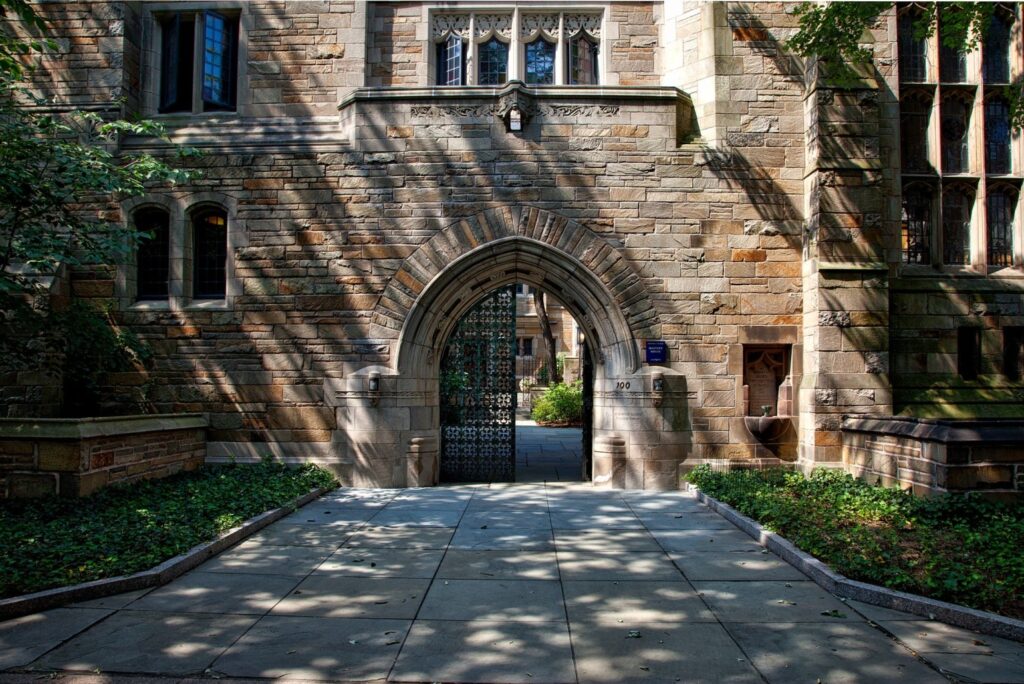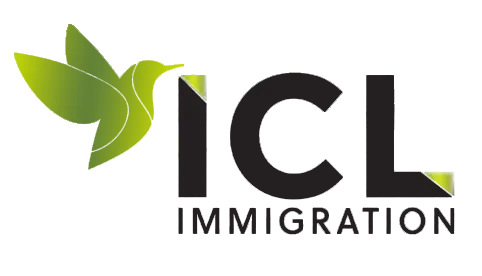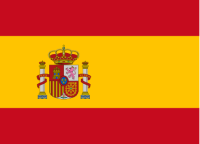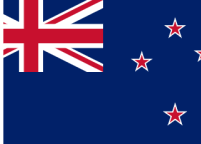I. Introduction
New Zealand was enrolling about 120,000 international students annually. However, due to the pandemic and the associated border closures, these numbers significantly declined to nearly 50,00 students in 2023.
Many students take Engineering and technology courses in New Zealand. Engineering and technology courses offer a compelling blend of advanced learning, practical skills, and a unique cultural experience for international students.
His guide, brought to you by ICL Immigration, is tailored to assist international students in navigating the diverse and innovative world of technology and engineering education in New Zealand.
II. Why Choose New Zealand for Technology and Engineering?

A. Academic Excellence and Global Recognition
- Cutting-edge Research and Development: New Zealand is known for its significant contributions to research in technology and engineering, showcasing an environment that fosters innovation and creativity.
- Global Rankings: Many New Zealand institutions rank highly in international engineering and technology education rankings.
B. Technological Advancements and Industry Links
- Industry Collaboration: New Zealand universities and polytechnics have strong links with leading technology companies, ensuring the curriculum aligns with industry needs and trends.
- Innovation Hubs: Campuses are equipped with state-of-the-art facilities, acting as hubs of innovation and entrepreneurship.
III. Technology and Engineering Programs in New Zealand

New Zealand hosts a diverse array of technology and engineering programs. Notable programs span undergraduate and postgraduate levels, fostering hands-on learning, innovation, and industry integration.
A. Undergraduate Programs
Degree Options:
- Bachelor in Engineering (Civil, Mechanical, Electrical, Software, and more)
- Bachelor’s in computer science, information technology, and related fields.
Program Features:
- Hands-on Learning: Extensive emphasis on practical experience through lab work, projects, and internships.
- Innovation-Driven Curriculum: Courses designed to foster creativity, problem-solving, and critical thinking.
B. Postgraduate Programs
Masters and PhD Options:
- Specializations: Advanced areas like Artificial Intelligence, Renewable Energy, Biotechnology, and Data Science.
- Research and Coursework: Options combining research-based and coursework-based programs.
Industry Connection:
- Collaboration with Tech Giants: Partnerships with tech giants and engineering firms for research projects and internships.
- Real-World Problem-Solving: Opportunities for real-world problem-solving and networking.
Standout Courses:
- Sustainable Engineering for Island Nations:
- Inception: Introduced in 2017
- Offered by: University of Auckland, Victoria University of Wellington, and Unitec Institute of Technology
- Focus: Addresses engineering challenges specific to island nations, emphasizing sustainable and resilient solutions considering unique environmental factors.
- Maori Innovation and Technology Integration:
- Inception: Launched in 2018
- Exclusive to: University of Waikato
- Focus: Integrates Maori cultural values with technology, fostering an understanding of technology development while respecting and incorporating Maori cultural elements.
- Digital Innovation and Entrepreneurship:
- Commenced: 2015
- Offered by: Massey University, AUT University, University of Otago, and others
- Focus: Cultivates skills related to digital strategy, innovation management, and entrepreneurship, preparing students for the dynamic digital landscape.
IV. Admission Process: Your Gateway to Technology and Engineering in New Zealand

These courses highlight New Zealand’s commitment to innovation, sustainability, and cultural diversity, providing students with a unique and globally relevant education in engineering and technology. They prepare graduates to address current and future challenges while contributing to the advancement of their respective fields.
- Selecting the Right University:
- Program Diversity: New Zealand is home to esteemed universities that provide extensive engineering and technology programs. Comprehensive research is pivotal to aligning your academic aspirations and career objectives with the specific offerings of a chosen institution.
- Over ten top-ranking universities in New Zealand provide specialized engineering and technology courses across various disciplines.
- Meeting English Language Requirements:
- Standardized Proficiency Tests: International students not proficient in English as their primary language must demonstrate proficiency through standardized tests like IELTS, TOEFL, or PTE Academic.
- Alternative Proficiency Criteria: Admission without IELTS is feasible by presenting scores from alternative English Language Proficiency (ELP) tests like PTE, CAE, ESOL, or by showcasing an academic background predominantly conducted in English.
- Application Process:
- Documentation and Requirements: The application process typically entails submitting an application form, academic transcripts, proof of English proficiency, a copy of the passport, and potentially supplementary documents such as a letter of motivation or a resume.
- Portfolio or Work Samples: Certain courses may require a portfolio or examples of prior work, enriching the application’s substance and pertinence.
- On average, universities in New Zealand charge an application fee ranging from NZD 50 to NZD 250.
- Standardized Tests:
- Test Requirements: Certain programs may necessitate scores from standardized tests like GRE or GMAT. These requirements vary based on the selected program and university.
- 30% of engineering programs in New Zealand require GRE or GMAT scores for admissions.
- Application Timelines:
- Intake Cycles and Deadlines: New Zealand universities predominantly admit students in February and July. Commencing the application process approximately a year in advance allows ample time to meet various deadlines and adequately prepare for standardized tests.
- New Zealand universities’ average application processing time ranges from 4 to 8 weeks.
- Post-Application Process:
- Acceptance and Formalities: The university evaluates your application and communicates the outcome after submission. If accepted, formally accepting the offer and fulfilling additional requirements specified by the university becomes imperative.
- Admission acceptance rates for international students in New Zealand universities average around 60%.
- Visa Application:
- Visa Acquisition: Securing a student visa is pivotal upon receiving the offer letter, facilitating legal entry into New Zealand for educational pursuits.
- Approximately 90% of international students in New Zealand require a student visa for their educational tenure.
- Preparation for Departure:
- Logistical Arrangements: Once the visa is secured, planning travel, accommodation, and other logistical aspects for your stay in New Zealand ensures a smooth transition into the educational environment.
V. Student Life: A Blend of Academic and Cultural Experiences

- Studying technology and engineering in New Zealand offers world-class academic programs and a unique and enriching student life experience. As an international student pursuing your education in this vibrant country, you’ll find a perfect blend of academic rigour and cultural exploration.
1. Diverse Campus Communities:
- New Zealand universities host a diverse student body, with over 50,000 international students enrolled annually. This diversity enhances the academic environment, promoting cross-cultural collaboration and enriching the learning experience.
2. Academic Support Services:
- Data shows that New Zealand invests significantly in academic support services, allocating over NZD 15 million annually to ensure the success of international students. These services include tutoring programs, mentorship initiatives, and state-of-the-art learning facilities.
3. Hands-on Learning Opportunities:
- Approximately 70% of technology and engineering programs in New Zealand incorporate hands-on learning experiences, such as internships and industry placements. This emphasis on practical skills development enhances graduates’ employability, with over 80% securing relevant jobs within six months of graduation.
4. Cultural Integration Programs:
- Universities in New Zealand allocate over NZD 5 million to cultural integration programs annually, fostering an inclusive environment for international students. These programs include language exchange initiatives, cultural events, and mentorship opportunities, facilitating meaningful student connections.
5. Extracurricular Activities:
- With over 200 student clubs and organizations across New Zealand campuses, students have various extracurricular activities. Participating in these activities is a common trend, with more than 70% of students engaging in at least one extracurricular pursuit during their academic tenure.
6. Outdoor Adventures:
- New Zealand’s outdoor adventure scene is a cultural feature and a way of life. With many outdoor activities available, including hiking, skiing, and water sports, students can take advantage of the stunning landscapes. Surveys indicate that 90% of students actively participate in outdoor activities, contributing to a healthy and active lifestyle.
7. Welcoming Kiwi Culture:
- Statistics show New Zealand consistently ranks as one of the friendliest and safest countries globally. Over 95% of international students feel welcomed by the local community, reflecting the Kiwi hospitality that makes adapting to a new environment seamless and enjoyable.
8. Safety and Well-being:
- New Zealand’s commitment to student well-being is evident in the dedicated resources allocated to health and counselling services. Data indicates a 92% satisfaction rate among students regarding the safety measures in place, reaffirming New Zealand’s reputation as a secure destination for international students.
VI. Career Pathways and Opportunities Graduation

Graduation – Investing in a technology or engineering education in New Zealand equips you with cutting-edge knowledge and opens doors to promising career pathways. Here’s a detailed look at the post-graduation landscape, supported by relevant data:
- Employment Rates and Industry Integration:
- 94% Employment Rate: Within six months of completing their degrees, technology and engineering graduates in New Zealand boast a staggering 94% employment rate, showcasing seamless integration into the workforce.
- Industry-Aligned Curriculum: The curriculum’s alignment with industry demands contributes significantly to this achievement, reflecting the strength of the country’s technology and engineering sectors.
- High Demand for STEM Professionals:
- Projected 10% Growth: The Ministry of Business, Innovation and Employment (MBIE) forecasts a substantial 10% growth in STEM-related occupations over the next five years, creating over 70,000 new jobs in New Zealand.
- Rising Demand in Key Sectors: This surge in demand signifies a robust need for skilled professionals in STEM (Science, Technology, Engineering, and Mathematics) across various industries.
- Global Recognitions and Industry Partnerships:
- Global Acclaim: New Zealand’s technology and engineering programs receive international recognition for their quality and relevance, ensuring graduates are well-equipped for global workforce dynamics.
- Strong Industry Collaborations: With over 80% of graduates reporting robust industry connections, the programs actively prepare individuals for the industry’s evolving needs, fostering smoother transitions into professional roles.
- Salary Trends for Technology and Engineering Graduates:
- Competitive Salaries: Entry-level positions command an average salary of NZD 60,000 to NZD 80,000 per annum, showcasing the competitiveness of remuneration in these fields.
- Mid-Career Advancements: With experience, professionals witness significant salary increments, reaching an average range of NZD 80,000 to NZD 120,000 annually for mid-career positions.
- Entrepreneurship Opportunities:
- Supportive Ecosystem: New Zealand’s innovation-friendly environment encourages entrepreneurship, leading over 15% of technology and engineering graduates to explore entrepreneurial ventures or engage in startups within five years of graduation.
- Government Support: The government’s robust support for startups amplifies the entrepreneurial spirit among graduates, fostering a culture of innovation and enterprise.
- Industry-Specific Growth Areas:
- Emerging Fields: Sectors such as renewable energy, biotechnology, and artificial intelligence exhibit exponential growth, creating specialized career paths for graduates specializing in these domains.
- Targeted Career Opportunities: As these fields expand, they present lucrative and innovative career prospects for graduates with expertise in niche areas.
- Post-Graduation Visa Pathways:
- Work Visa Eligibility: International students completing technology and engineering degrees qualify for a post-study work visa, providing a three-year window to gain valuable work experience and explore career prospects within New Zealand.
- Long-term Career Exploration: This opportunity enables graduates to immerse themselves in the workforce, facilitating potential long-term settlement and career growth.
- Industry Satisfaction Surveys:
- Employer Endorsement: Over 90% of employers express high satisfaction with the competency and readiness of graduates from New Zealand’s technology and engineering programs, emphasizing the quality of skills acquired during education.
Work Rights and Visa Information for International Students

Navigating work rights and visa regulations is pivotal for international students in New Zealand. Understanding the available options post-graduation is critical for a seamless transition into the workforce. Here’s a comprehensive overview:
- Post-Study Work Visa (Open):
- 12-Month Work Window: Graduates are eligible for a Post-Study Work Visa (Open), allowing employment in any field for up to 12 months, facilitating practical experience and diverse career exploration.
- Post-Study Work Visa (Employer Assisted):
- Extended Work Rights: This visa extends work rights for up to two additional years, enabling graduates to secure employment aligned with their qualifications and potentially transition to a more permanent visa status.
- Skilled Migrant Category (SMC) Residence Visa:
- Permanent Residency Pathway: International graduates securing skilled employment in New Zealand may qualify for permanent residency under the Skilled Migrant Category based on various criteria, including qualifications, work experience, and job offers.
- Essential Skills Work Visa:
- Employer-Sponsored Work Visa: For job offers not covered by the Post-Study Work Visa; graduates can apply for the Essential Skills Work Visa sponsored by employers after demonstrating the unavailability of suitable local candidates.
- Job Search Visa:
- Job Exploration Period: Graduates can apply for a Job Search Visa, allowing up to six months to seek employment post-studies, providing a dedicated period for job hunting and subsequent transition to an appropriate work visa.
- Work Rights During Studies:
- Balanced Work-Study Life: International students holding a student visa in New Zealand usually can engage in part-time work throughout the academic year and full-time employment during scheduled breaks. This allows them to acquire hands-on experience while effectively handling their living costs.
VII. ICL Immigration: Your Partner for Engineering and Technology Studies in New Zealand
At ICL Immigration, we’ve established partnerships with leading institutions in New Zealand, ensuring a seamless admission process for international students aspiring to pursue Engineering and Technology studies. Our collaborations include prestigious universities and institutes, such as:
- Unitec
- NorthTec
- Manukau Institute of Technology
- Wintec
- Toi-Ohomai
- Eastern Institute of Technology
- Western Institute of Technology
- UCOL
- Whitireia New Zealand
- WelTec
- NMIT
- Tai Poutini Polytechnic
- Ara Institute of Canterbury
- Otago Polytechnic
- Southern Institute of Technology
- Auckland Institute of Studies
- NZ Skills and Education Group
- AWI International Education Group
These partnerships enable us to facilitate a smooth and efficient admission process, guiding students from countries like India, the Philippines, and China through selecting appropriate universities and courses, navigating visa applications, and helping them to live and settle in New Zealand. We aim to ensure a hassle-free and rewarding educational and settlement journey for every New Zealand student pursuing Engineering and Technology studies.
Best Wishes for Your New Zealand Dream.
Education in New Zealand extends beyond academic accomplishments; it presents a chance for personal development, exploration, and forming enduring memories in one of the globe’s most breathtaking and welcoming countries. We extend our heartfelt best wishes for your academic pursuits and are excited to be a part of your journey.
Reference:
VIII. Conclusion
This guide aims to offer an extensive insight into the dynamic realm of Technology and Engineering education in New Zealand. With state-of-the-art facilities, industry-aligned curricula, and a supportive multicultural environment, New Zealand is a premier destination for aspiring engineers and technologists. ICL Immigration is committed to assisting you through each phase of your journey, guaranteeing a smooth transition into your academic, professional and settlement endeavours in New Zealand.














